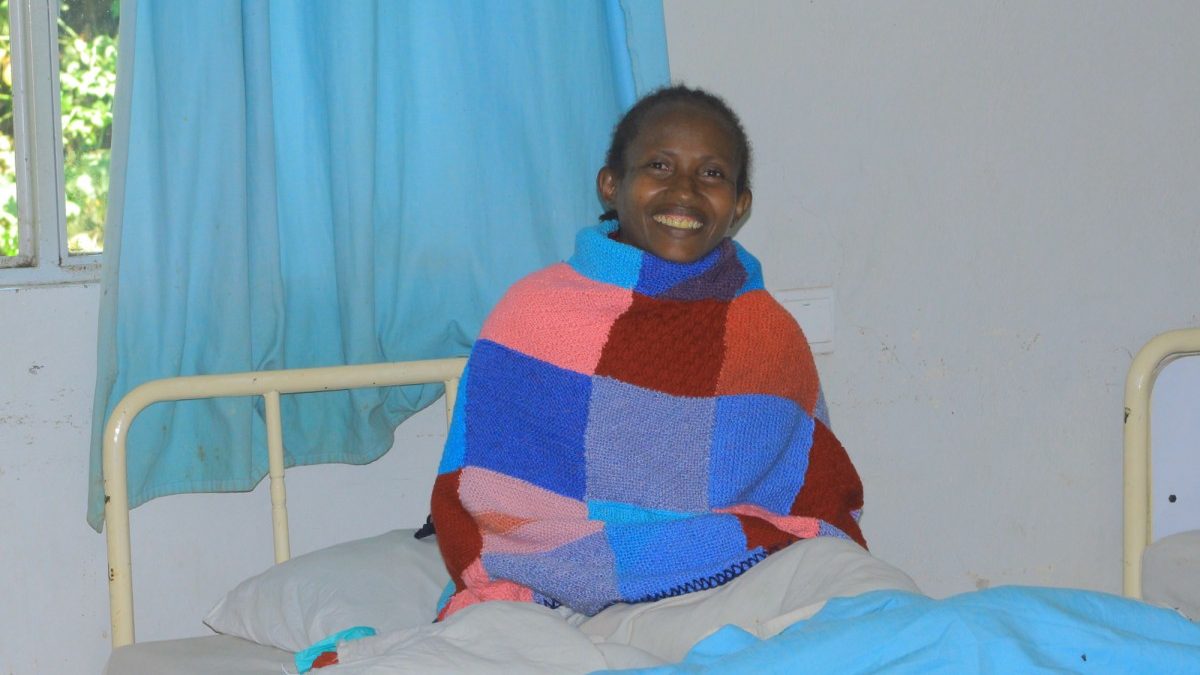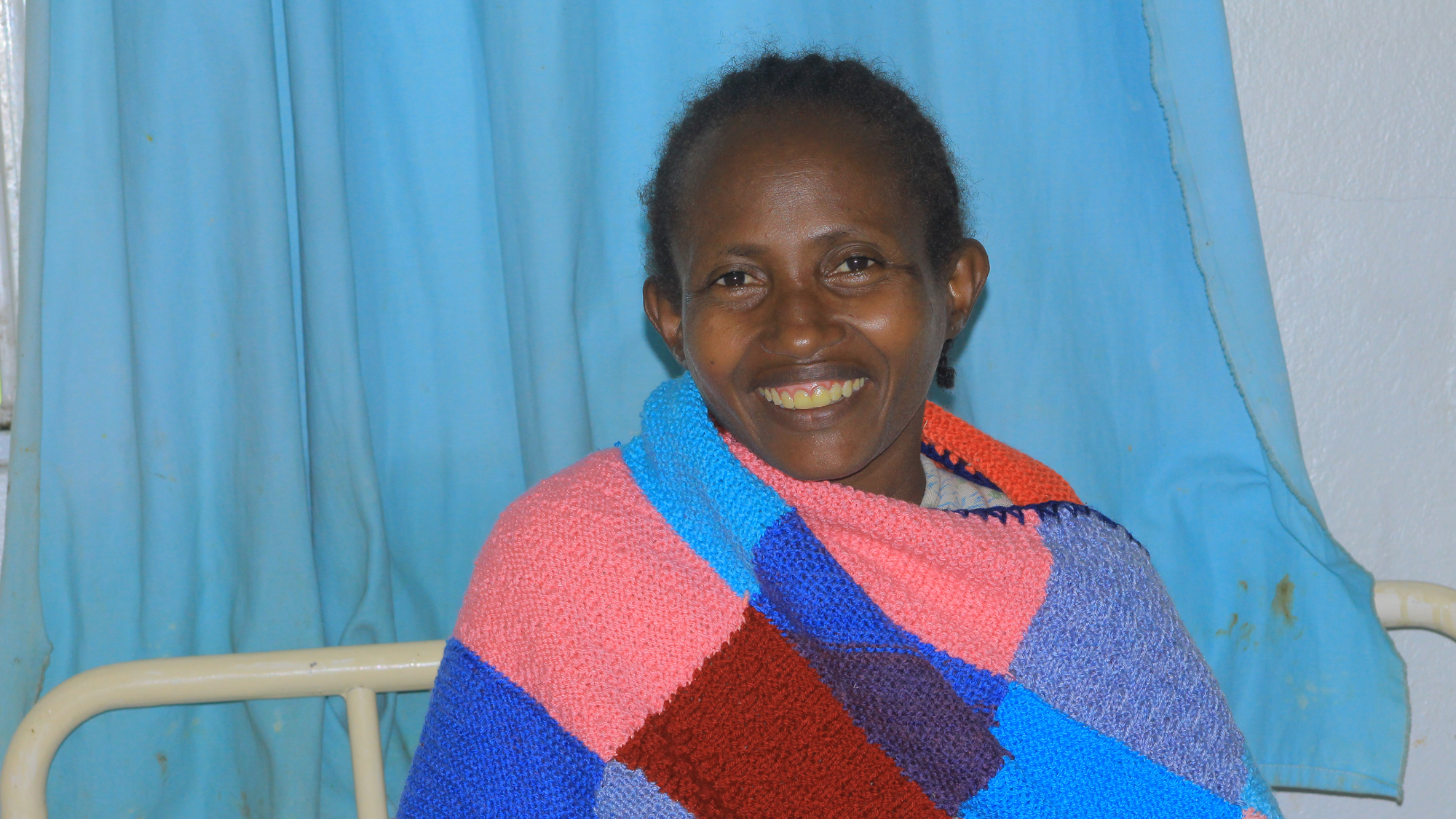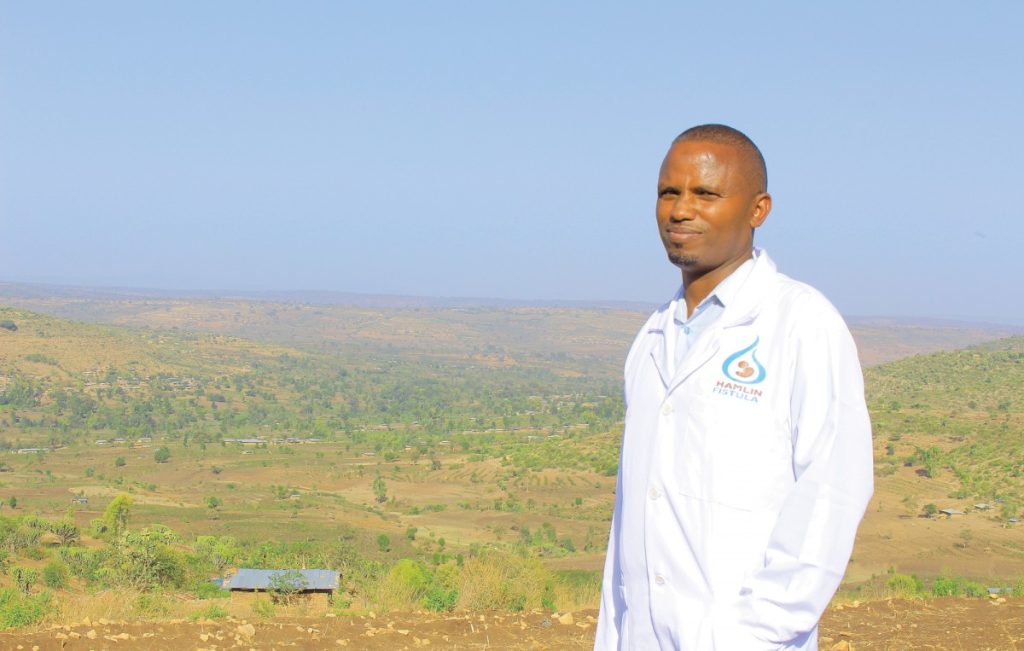Genet’s world was shattered when she suffered an obstetric fistula injury. Near the remote village of Konta Koysha in southern Ethiopia, she spent five long months in agony, leaking urine, abandoned by her husband and isolated from her friends and neighbors. Over the course of three short weeks at Hamlin’s Yirgalem Fistula Hospital, Genet’s world was transformed once again into one of hope, good health, and happiness.
Genet’s life before fistula
Like most families in her community, Genet’s family were poor subsistence farmers. Genet was never able to attend school and was illiterate when she got married. Her married life, however, was a source of joy: she gave birth to a girl, and three years later, she gave birth a healthy boy.

Her third pregnancy, tragically, was not as joyous. Genet began her labor at home, where she had planned to deliver her baby. After two arduous days, however, the baby had not come, and she was in agonizing pain. On the third day of her obstructed labor, Genet was carried to the closest clinic for help but it was too late: her child was stillborn and Genet had suffered a childbirth injury called obstetric fistula.
The grief of fistula
“When I knew I lost my baby I felt heavy grief and went back home in sadness. I thought that was it but after two weeks of being unable to urinate, I became completely incontinent. This doubled my grief. I wished death rather than living in such a shameful condition,” Genet recalls.
After her injury, Genet was abandoned by her husband. She still carried on, searching for a cure for her condition, looking at traditional medicine from the village that could help, but nothing helped. Alone and ashamed, Genet struggled to take care of her two children, now seven and four years old. Simple joys were tarnished by her incontinence – she found it difficult to even hug her own children.
Free to hug her children
For five grueling months, Genet felt hopeless. She learned about Hamlin Fistula Ethiopia from a cured former Hamlin patient she came across at the village marketplace. Determined, she headed towards Hamlin’s Yirgalem Fistula Hospital where she was welcomed with love and respect.

Under the Hamlin Model of Care, Genet’s physical and psychological trauma were treated, free of charge. In her three-week stay at Yirgalem Fistula Hospital, she received holistic care that included physiotherapy, nutritious meals, fistula-repair surgery, counseling, and literacy and numeracy classes.
“Now I am completely dry, and I can’t wait to freely meet my children and hug them without frustration. This whole miracle has happened because of this hospital and the extraordinary staff working inside,” Genet exclaims. “I will always remember the kindness I got from you and pray for your long-lasting existence so that more women like me can be cured of this traumatic injury. Thank you very much!”
Educating the community about fistula – and its cure
Hamlin’s Patient Identification Program finds, identifies, and treats fistula patients – it is also an education tool which is vital in the effort to raise awareness of obstetric fistula and its cure through fistula-repair surgery.

Hamlin Patient Identification Officer Mohammed has seen first-hand the barriers to adequate maternal health care. “Many women living with obstetric fistula are uneducated and can’t express their needs or medical concerns,” Mohammed says. “I listen, comfort and counsel women, and convince them that there is a better life waiting for them. At a Hamlin fistula hospital, they receive physiotherapy, psychological and nutritional therapy to get them ready for their surgery and treatment,” he explains.
Tragically there are still an estimated 31,000 women like Genet living with untreated fistula injuries in silence. You can help find these women and restore their dignity and health. Please consider making a donation to help more women like Genet.